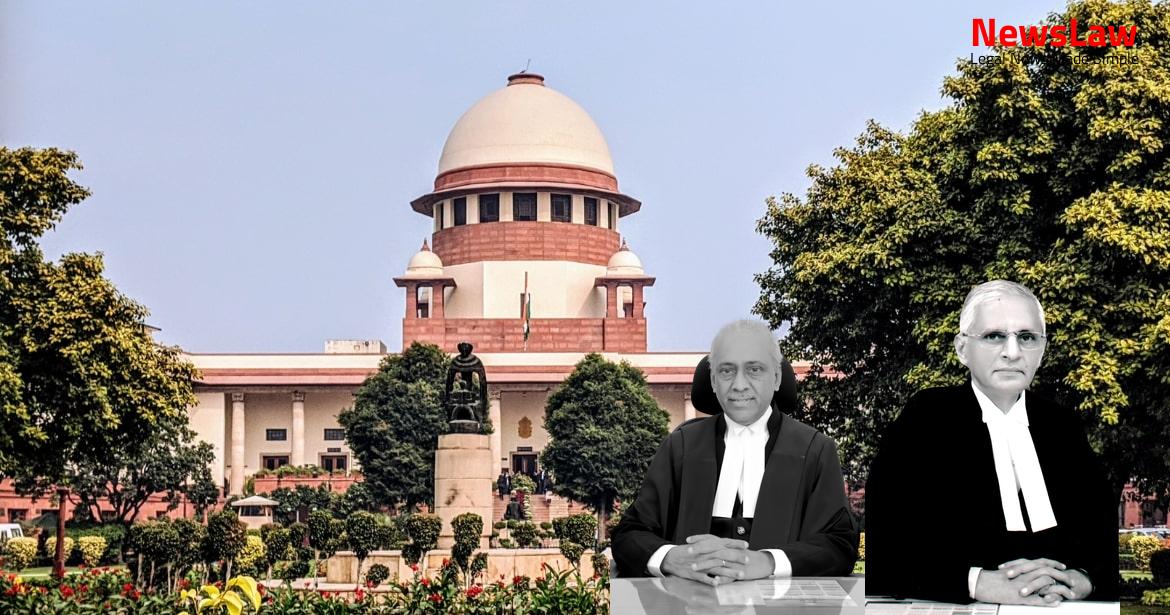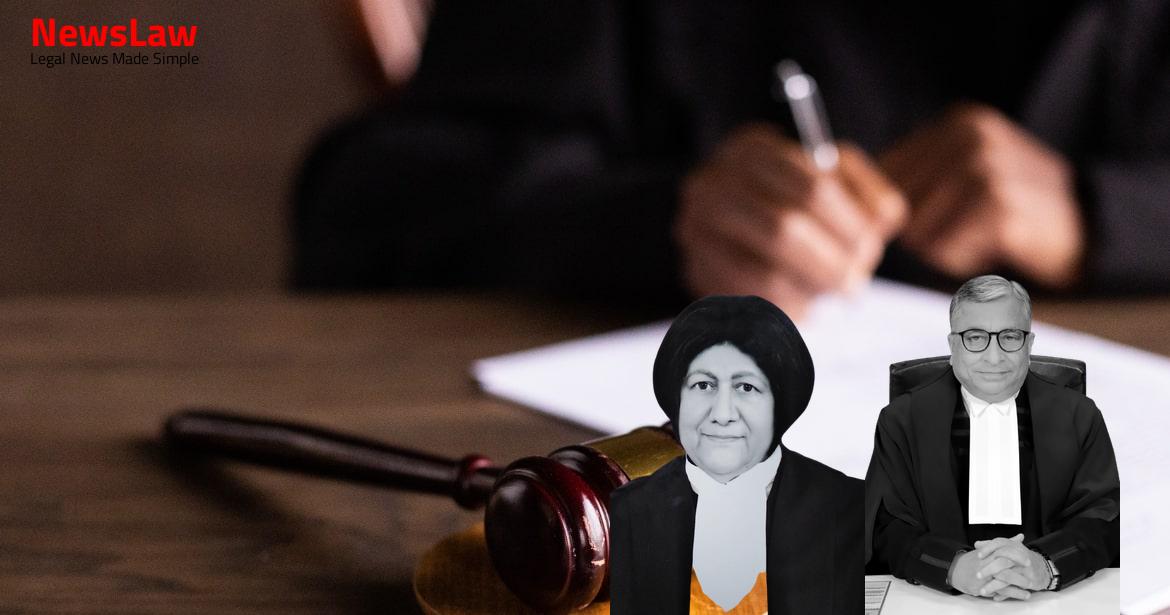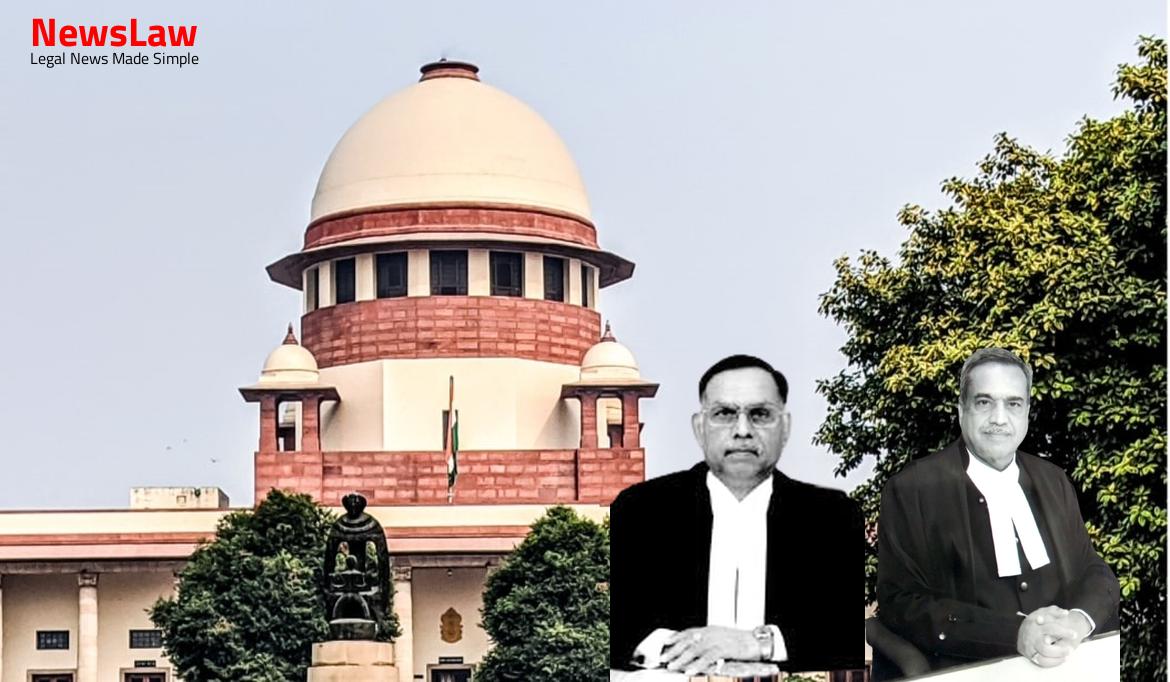Delve into the detailed legal analysis by the court on the interpretation of qualification criteria for judicial appointments, specifically focused on Article 217 of the Constitution. The court’s examination of eligibility criteria and the method of computation under this article sheds light on the nuances of appointments in the legal realm. The case discussions revolve around the specific language used in relevant clauses and the distinction between candidates from judicial service and those from advocacy backgrounds. Stay tuned to uncover the intricate details of this legal case.
Facts
- The petitioners filed a writ petition in September 2019 but had not completed 10 years of service as Judicial Officers at that time.
- The petitioners were appointed as District Judges after practicing as advocates for varying durations, with the senior-most petitioner having practiced for over 10 years.
- The petitioners claim to be senior-most in the cadre of District Judges but were overlooked for elevation to the High Court in favor of their juniors.
- The seniority of direct recruits, like the petitioners, over promotees was upheld by a 2015 judgment of the Division Bench of the Madras High Court.
- For the purpose of Article 233(2), an advocate needs to have at least 7 years of continuous practice on the cut-off date and at the time of appointment as District Judge.
- Judicial Service members with 7 years of practice experience before joining the service or with a combined experience of 7 years as a lawyer and a member of the judiciary cannot apply for direct recruitment as District Judge.
- The decision in Vijay Kumar Mishra vs. High Court of Judicature at Patna supporting Judicial Officers’ eligibility for District Judge by direct recruitment is overruled.
- Individuals cannot switch between lawyer and judicial officer streams for recruitment purposes per the Dheeraj Mor case.
- A Division Bench ordered the matter to be heard by a larger bench after vacancies arose for elevation to the High Court and it was found that the Petitioners did not meet the 10 years of service requirement in a Judicial Office as per Article 217(2)(a).
Also Read: Analysis of High Courts’ Jurisdiction and Court Orders Under Article 142
Arguments
- The petitioners argue that if the contesting respondents are granted the benefit of clubbing, they will be far senior to the petitioners in terms of total years of service, affecting their chances of being considered for vacancies under the service quota.
- They express concern that the proposed amendment could result in anomalies where individuals with less overall experience could be eligible for appointment as High Court judges over others with more varied experience.
- The petitioners refer to Article 217(2) of the Constitution, emphasizing the need to interpret qualification criteria fairly and without discrimination against judicial officers.
- They highlight the maintenance of seniority lists and the importance of considering a specific number of officers for vacancies based on service quota requirements.
- The petitioners argue that while they reject clubbing two services for the purpose of seniority, they advocate for combining practice at the Bar with judicial service for eligibility considerations.
- They differentiate their arguments from previous cases involving the appointment of members to the Income Tax Appellate Tribunal, asserting that those decisions are not directly applicable to judicial office holders.
- The petitioners draw attention to a cumulative reading of Article 217(2) and related explanations, along with citing a previous court ruling on adding practice years as an advocate to judicial service years for determining qualifying service for benefits.
- They mention a reference to a three-member bench regarding the eligibility criteria for direct recruitment to the post of District Judge, based on practice years as an advocate and service years as a Judicial Officer.
- The petitioners illustrate a scenario where they advocate for combining advocacy experience with judicial service for determining eligibility, using the example of a person appointed as a District Judge after a period of practice at the Bar.
Also Read: Electoral Malpractices in Mayor Election
Analysis
- Explanation (a) confers the benefit of clubbing to a limited extent to a person who has held a Judicial Office.
- The benefit of present Explanation (a) was not available to judicial officers until 20.06.1979.
- The issue revolves around the eligibility criteria under Article 217(2)(b) and the interpretation of ‘practising advocates’ in the context of judicial appointments.
- Article 217(2) prescribes eligibility criteria and the method of computation of the same.
- The use of ‘has held’ and ‘has been’ in the clauses and explanations under Article 217(2) is crucial for determining eligibility from different backgrounds.
- There are two separate queues for candidates from judicial service and candidates who are advocates.
- The Word ‘or’ in the clauses and explanations denotes alternative eligibility sources, either from the Bar or the judicial service.
- The petitioners’ argument to club their experience from the bar with judicial service is not supported by the interpretation of Article 217(2)(b) and its explanations.
- Judges undergo a career progression from District Judges to High Court judges based on their background in either the bar or judicial service alone.
- The judgment discusses previous cases and interpretations related to the eligibility criteria for judicial appointments, emphasizing the specificity of the language used in the relevant clauses.
- The petitioners’ case falls under Article 217(2)(a) and not Article 217(2)(b) based on the current scenario.
- Article 217(1) deals with the method of appointment and the age limit for holding office.
- Article 217(2) stipulates qualifications for appointment under sub-clauses (a) and (b).
- Consideration can be given to a person with five years’ experience as a High Court judge, an advocate with ten years’ experience, or a distinguished jurist.
- Advocates with the specified experience are entitled to be considered for appointment at District Courts, High Courts, and the Supreme Court.
- Appointments to the High Court can be made from members of a judicial service of a State or advocates with ten years’ experience.
- The Constitution mandates that a person must be a citizen of India and have either held a judicial office for 10 years or been an advocate of a high court for 10 years to be qualified for appointment.
- The judgment in D.K. Sharma followed the ruling in Mahesh Chandra Gupta.
- The expression ‘judicial office’ in Article 217(2)(a) was explained in Shri Kumar Padma Prasad vs Union of India to mean a judicial office belonging to the judicial service defined in Article 236(b).
- Majority of the individuals mentioned in Para 16 of the Writ Petition were appointed to the High Court before Constitution (44th Amendment) Act, 1978.
- It is unknown whether these individuals were appointed by clubbing the number of years of practice at the Bar.
- The claim of the writ petitioners is deemed wholly untenable and the writ petition is considered misconceived.
Also Read: Balancing Power and Transparency: Electoral Bonds Struck Down, Disclosure Mandated
Decision
- The writ petition was dismissed.
- No order was given as to costs.
Case Title: R. POORNIMA Vs. UNION OF INDIA (2020 INSC 534)
Case Number: W.P.(C) No.-001172 / 2019



